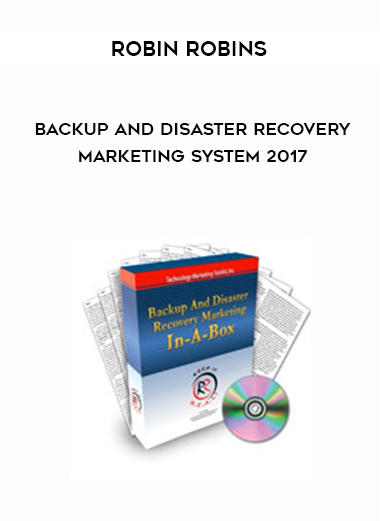
The Teaching Company – History of the English Language
Salepage : The Teaching Company – History of the English Language
Archive : The Teaching Company – History of the English Language Digital Download
Delivery : Digital Download Immediately
Sixteen centuries ago a flood of people from northern Europe came to the British Isles speaking a combination of Germanic dialects heavy with consonants and complicated grammatical structures. Today we name that dialect Old English, the origin of the language roughly one in five people in the globe speaks every day.
How did this old dialect grow into the exquisite idiom of Chaucer, Shakespeare, Twain, Melville, and other great writers? What elements of current English spelling and lexicon relate it to its Old English roots? How did English grammar get so streamlined? Why did its pronunciation suffer such severe changes? How can we even know what English sounded like in the distant past? And how does English continue to grow to the present day?
The History of the English Language, 2nd Edition, is Professor Seth Lerer’s revised and updated exploration of the amazing history of English, from the forceful writing of King Alfred in the Middle Ages to the modern-day sermons of Martin Luther King, Jr.
Throughout its history, English has been an extremely changeable language, rapidly embracing new terminology and new ways of communicating meaning. Professor Lerer brings this second edition up-to-date by covering discussions of the newest developments brought about by such phenomena as hip hop, e-mail, text messaging, and the world wide web.
Are you a logophile—someone who
Pauses over a word to speculate about its origin
Stops to examine if a phrase or word is “appropriate”
Savors a colorful idiom or slang term
Is worried about the use—and abuse—of English\sIs simply plain fascinated about words?
Then you will find these 36 half-hour lectures endlessly entertaining and extremely gratifying.
Hear the Sound of English through the Centuries
The author of several authoritative books and essays on the English language and English literature, Professor Lerer is an expert who understands how to make people enthused about their mother tongue, as indicated by his many teaching honors.
Washington Post reviewer Michael Dirda complimented the first version of this course as “justly popular,” and went on to applaud Professor Lerer’s manner as “erudite without ever being tedious.”
Professor Lerer draws your interest from the outset of lesson 1 when he recites a series of classic passages in their conjectured historical pronunciation. The three quotations begin as follows:
Nu sculon herigean heofonrices Weard
Whan that Aprill with his shoures soote
To be, or not to be: that is the question
The first is the start of Hymn, Caedmon’s the first known poetry in Old English, created about the year A.D. 680. Most people are hard-pressed to detect any relation to current English, yet you will learn that there are numerous buried clues.
The second paragraph comes from the prologue to Geoffrey Chaucer’s Canterbury Tales, published in Middle English in the late 1300s. This is recognized as English, but with a combination of strange words. You will find that many of the unusual terms are really slightly disguised versions of those we use today.
The last passage, of course, comes from Shakespeare’s Hamlet, penned about 1600. But you may be astonished to hear Professor Lerer’s reading of this classic soliloquy, which barely sounds like the pronunciation of current British Shakespearean players. That is because English in Shakespeare’s day did not sound like what we’ve been accustomed to hearing on the stage.
The Great Vowel Shift and More
From this basic sample of English across the ages, you begin your adventure. Professor Lerer continues chronologically, beginning with the origins of English in the theorized ancient languages known as Indo-European, possibly spoken 5,000 to 6,000 years ago by a group of agricultural peoples living around the Black Sea.
Never written down, the Indo-European languages were discovered in the 19th century when an English academic realized that some terms, such as the Sanskrit raj, the Latin rex, the German reich, and the Celtic rix, were similar in sound and meaning (they all mean king or ruler) (they all mean king or ruler). These and other indicators showed that most of the languages from Ireland to India descended from a single language or set of dialects, which came to be dubbed Indo-European. Germanic emerged from this protolanguage, while Old English evolved out of Germanic.
Linguists have created extraordinary techniques for tracking how languages evolve through time. In this course, you will apply these techniques to study four specific areas:
Pronunciation: As you can see from the Old English sample above, the sound of English has altered drastically. The most known example is the Great Vowel Shift, a systematic alteration in the pronunciation of vowels that happened in the 15th and 16th centuries. Professor Lerer’s reading of certain lines from Shakespeare’s Richard III shows that the change was not yet complete in the Elizabethan age.
Grammar and Morphology:
Grammar covers the way words operate together, whereas morphology specifies their shape, such as whether nouns and verbs are inflected. The development of such traits is intriguing to follow, as in the Old English and Middle English expression methinks, where me is not the subject but rather the indirect object. The compound translates as “it appears to me.”
Meaning (Semantic Change):
Words alter meaning. Take the word silly, which originates from the root selig, meaning blessed. Over time, the phrase developed to denote not the inner spiritual condition of being blessed but the observable action of someone who acts stupidly. When reading an ancient work, consider that seemingly familiar phrases may not signify what you believe.
Attitudes toward Language Change: What are we to make of the considerable variance in language use throughout the people who speak English? The 18th-century English lexicographer Samuel Johnson battled with this difficulty while writing his famous lexicon. The dispute is echoed in today’s discussion over prescriptivism (the belief that accurate linguistic conduct should be taught) and descriptivism (the view that linguistic behavior should merely be explained) (the idea that linguistic behavior should only be described).
From English to American
Published in London in the mid-18th century, Samuel Johnson’s Dictionary of the English Language was the first reference work used as we use a dictionary today: as a source for everyday, individual inquiries about spelling, pronunciation, and grammatical use.
Another significant dictionary plays strongly in the latter part of the course, which concentrates on English in America. In the early 19th century, Noah Webster developed a dictionary devoted to America’s straightforward and commonsensical connection with the English language. Today’s discrepancies between American and English spelling—for example, color versus colour, defense versus defence—are attributable to Webster. He also documented American pronunciations and advised that all the syllables of a word be enunciated: “necessary” and “secretary,” not “necessry,” and “secretry.”
Professor Lerer invites you to step back and observe your own pronunciation. If you are from the South, do you pronounce the words pin and gem with the same vowel? Professor Lerer himself is from Brooklyn, but the harshest features of his accent were worked out long ago by his mother, a speech therapist for the New York City schools. However, like many former dialect speakers, he may revert to his origins, as he illustrates how he used to pronounce often and orphan the same way.
Experience a Great Civilization via Its Words
English has gone a long way since the first Germanic immigrants crossed the North Sea to Britain. The phrases you use every day are like archaeological artifacts connecting our age to theirs. To study the history of this marvelous language with Professor Lerer is to experience the literature, politics, culture, methods of thought, and world orientation of a great civilisation via its most valuable legacy: its words.
More from Categories : Everything Else


![[Audio Only] CC19 Workshop 15 - Advanced Relational Life Therapy (RLT) - Terry Real](https://illedu.info/wp-content/uploads/2021/07/ajHcWg3pZEWoZ4CLN52R4A-200.jpg)











Reviews
There are no reviews yet.